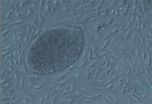(Press-News.org) Nodding off in class may not be such a bad idea after all. New research from the University of Notre Dame shows that going to sleep shortly after learning new material is most beneficial for recall,
Titled "Memory for Semantically Related and Unrelated Declarative Information:
The Benefit of Sleep, the Cost of Wake," the study was published March 22 in PLOS One.
Notre Dame Psychologist Jessica Payne and colleagues studied 207 students who habitually slept for at least six hours per night. Participants were randomly assigned to study declarative, semantically related or unrelated word pairs at 9:00 a.m. or 9:00 p.m., and returned for testing 30 minutes, 12 hours or 24 hours later. Declarative memory refers to the ability to consciously remember facts and events, and can be broken down into episodic memory (memory for events) and semantic memory (memory for facts about the world). People routinely use both types of memory every day – recalling where we parked today or learning how a colleague prefers to be addressed.
At the 12-hour retest, memory overall was superior following a night of sleep compared to a day of wakefulness. However, this performance difference was a result of a pronounced deterioration in memory for unrelated word pairs; there was no sleep-wake difference for related word pairs. At the 24-hour retest, with all subjects having received both a full night of sleep and a full day of wakefulness, subjects' memories were superior when sleep occurred shortly after learning, rather than following a full day of wakefulness.
"Our study confirms that sleeping directly after learning something new is beneficial for memory. What's novel about this study is that we tried to shine light on sleep's influence on both
types of declarative memory by studying semantically unrelated and related word pairs," Payne says.
"Since we found that sleeping soon after learning benefited both types of memory, this means that it would be a good thing to rehearse any information you need to remember just prior to going to bed. In some sense, you may be 'telling' the sleeping brain what to consolidate."
### END
Learning best when you rest: Sleeping after processing new info most effective, new study shows
2012-03-26
ELSE PRESS RELEASES FROM THIS DATE:
Researchers discover why humans began walking upright
2012-03-26
WASHINGTON—Most of us walk and carry items in our hands every day. These are seemingly simple activities that the majority of us don't question. But an international team of researchers, including Brian Richmond at the George Washington University, have discovered that human bipedalism, or walking upright, may have originated millions of years ago as an adaptation to carrying scarce, high-quality resources. This latest research was published in this month's "Current Biology."
The team of researchers from the U.S., England, Japan and Portugal investigated the behavior ...
Researchers develop new technique to assess diversity of plant species from afar
2012-03-26
EAST LANSING, Mich. --- By analyzing vegetation information collected by satellites over time instead of for just one day, scientists in the Michigan State University Center for Systems Integration and Sustainability (CSIS) have developed a novel procedure to assess the composition of plant species in an area.
Researchers long have used multi-spectral images (which include radiation outside human perception, such as infrared) and other remotely sensed data to create maps of vegetation around the globe. But seasonal changes in vegetation can limit the usefulness of these ...
Embryonic stem cells shift metabolism in cancer-like way upon implanting in uterus
2012-03-26
Shortly after a mouse embryo starts to form, some of its stem cells undergo a dramatic metabolic shift to enter the next stage of development, Seattle researchers report today. These stem cells start using and producing energy like cancer cells.
This discovery is published today in EMBO, the European Molecular Biology Organization journal.
"These findings not only have implications for stem cell research and the study of how embryos grow and take shape, but also for cancer therapy," said the senior author of the study, Dr. Hannele Ruohola-Baker, University of Washington ...
A shiny new tool for imaging biomolecules
2012-03-26
At the heart of the immune system that protects our bodies from disease and foreign invaders is a vast and complex communications network involving millions of cells, sending and receiving chemical signals that can mean life or death. At the heart of this vast cellular signaling network are interactions between billions of proteins and other biomolecules. These interactions, in turn, are greatly influenced by the spatial patterning of signaling and receptor molecules. The ability to observe signaling spatial patterns in the immune and other cellular systems as they evolve, ...
Stroke Progress Review Group sets priorities for future NIH stroke rehabilitation research
2012-03-26
West Orange, NJ. March 23, 2012. In 2011, the National Institute of Neurological Disorders and Stroke (NINDS) convened the Stroke Progress Review Group (SPRG) to conduct a final 10-year review of the state of stroke research. The goal is to set priorities and shape future NINDS programs and policies. While SPRG found much available data for maximizing stroke rehabilitation outcomes, translation to clinical practice is inadequate. To realize the enormous potential for improving rehabilitation and recovery, more resources should be applied to implementing and directly supporting ...
Moffitt Cancer Center researchers link stigma to depression among lung cancer patients
2012-03-26
TAMPA, Fla. (March 23, 2012) – Studying the role of social stigma in depression for lung cancer patients, researchers at Moffitt Cancer Center in Tampa, Fla., have found that depression can be heightened by a lung cancer patient's sense of social rejection, internalized shame and social isolation. These factors may contribute to depression at rates higher than experienced by patients with other kinds of cancer.
Their study was published in a recent issue of Psycho-Oncology (21:2012).
"To the best of our knowledge, this is the first study to examine the relationship ...
American Chemical Society Presidential Sessions focus on outreach, chemistry innovations
2012-03-26
SAN DIEGO, March 23, 2012 — More than a dozen symposia and other events at the American Chemical Society (ACS) 243rd National Meeting & Exposition are being sponsored or recommended by noted science communicator and ACS President Bassam Z. Shakhashiri, Ph.D. They range from a science outreach event for children at PETCO Park to news from an emerging field of chemistry that promises to produce medicines inside patients' bodies, as well as a symposium on communicating science to the public.
Communicating science is a major part of Shakhashiri's presidential theme for the ...
Complications in patients undergoing PCI tend to occur within first 30 days
2012-03-26
BOSTON, MA—Percutaneous coronary intervention (PCI), also known as coronary angioplasty or angioplasty, is a procedure used to treat acute coronary syndromes. PCI involves opening a blocked blood vessel by threading and inflating a balloon-tipped tube into the vessel. Sometimes a stent is also inserted to keep the blood vessel open.
While undergoing PCI treatment, doctors usually give patients medicine to prevent complications that may occur from the procedure.
In a new study by researchers at Brigham and Women's Hospital (BWH), types and timing of cardiovascular ...
Study examines treatment of heart failure with bone marrow cells
2012-03-26
Use of a patient's bone marrow cells for treating chronic ischemic heart failure did not result in improvement on most measures of heart function, according to a study appearing in JAMA. The study is being published early online to coincide with its presentation at the American College of Cardiology's annual scientific sessions.
Cell therapy has emerged as an innovative approach for treating patients with advanced ischemic heart disease, including those with heart failure. "In patients with ischemic heart disease and heart failure, treatment with autologous [derived from ...
Cell therapy using patient's own bone marrow may present option for heart disease
2012-03-26
CHICAGO— Cell therapy may present an option for patients with ischemic heart disease to use their own bone marrow cells to repair the damaged areas of their hearts, and may pave the way for future treatment options, according to the FOCUS trial, which will be presented as a late-breaking clinical trial March 24 at the 61st annual American College of Cardiology (ACC) scientific session.
This is the largest study to date to look at stem cell therapy, using a patient's own stem cells, to repair damaged areas of the heart in patients with chronic ischemic heart disease and ...


